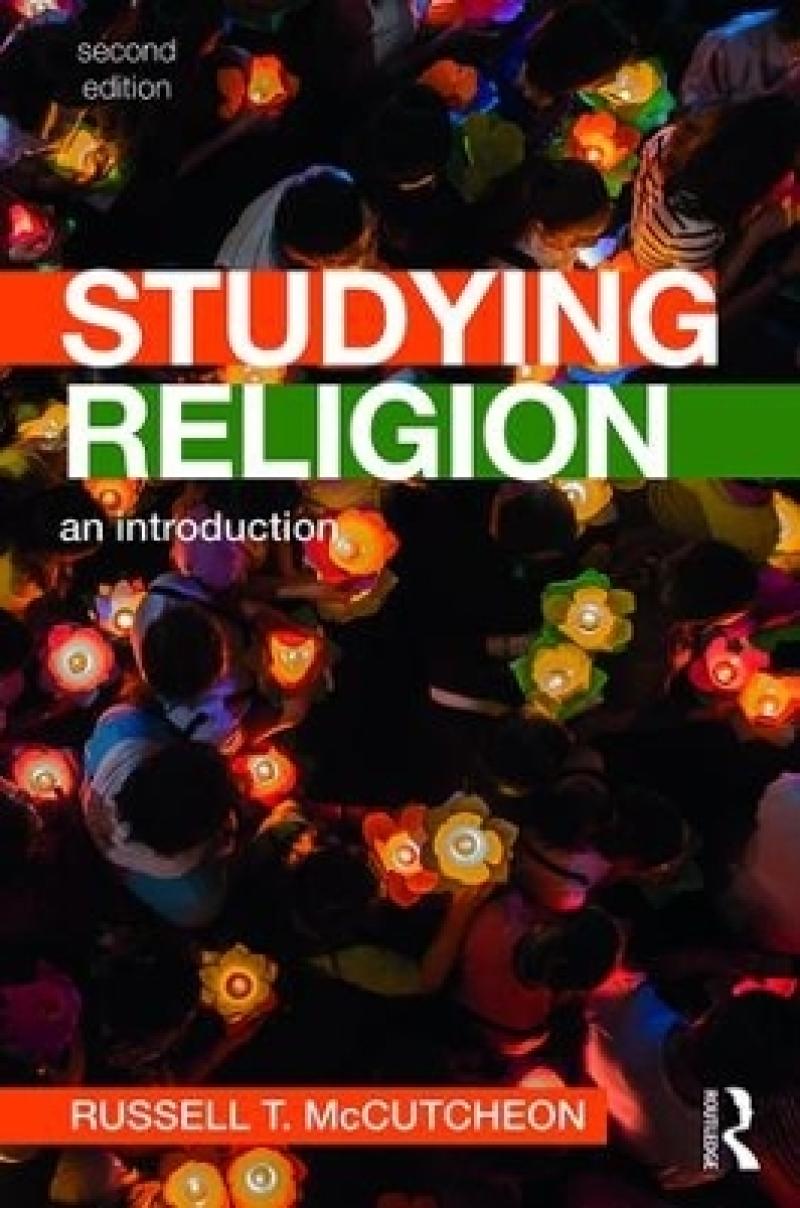<p>"If you find yourself teaching a course on the study of religion or need to get a brief history and recent thinking on the subject, this expanded edition of <i>Studying Religion </i>has you in mind. Russell McCutcheon has added to each of the core chapters a follow-up example, which works great as a case study for the classroom, as well as short sections on further considerations and scholarly criticisms. One of my favourite examples is the case of Nix v Hedden, on whether a tomato is a vegetable for the purpose of taxation. This leads us to reflect on how we might classify something as ‘religion’ or ‘a church’ (in another example provided in this volume). Therefore, there is much to stimulate the reader and to employ in the classroom. McCutcheon has written this by keeping in mind the needs of both his colleagues and students, but with a greater international awareness. As previously, this edition also includes a glossary, with additional terms such as ‘Identity’ and ‘Nones’, and a sizeable section on a selection of scholars and their views on religion. Further additions include the influence of colonialism and the World Religions Paradigm on how we categorise religion. This book is both practical and, as Lévi-Strauss might say, good to think with." <strong>Suzanne Owen</strong>, <em>Leeds Trinity University, UK.</em></p>
<p>‘If you find yourself teaching a course on the study of religion or need to get a brief history and recent thinking on the subject, this expanded edition of <i>Studying Religion</i> has you in mind. This book is both practical and, as Lévi-Strauss might say, good to think with.’ </p><p><strong>- Suzanne Owen, Leeds Trinity University, UK</strong></p><p>"Those who want to explore religion as part of culture should start here."</p><p><strong>- Matthew Recla, Boise State University, USA, <em>Reading Religion</em></strong></p>
Widely used as a primer, a class text, or just a provocation to critical thinking, Studying Religion clearly explains the methods and theories employed in the academic study of religion by tackling the problem of how we define religion. Written for newcomers to the field, its chapters explore the three main ways in which religion is defined and, along the way, also considers a range of related topics, from the history and functions of religion to public discourse on religion, religion in the courts, and the classification of religions. The works of classic and contemporary scholars—from Karl Marx and Sigmund Freud to Bruce Lincoln and Wendy Doniger—are analyzed and explored in its readable chapters and detailed supporting materials. Studying Religion represents a shift away from the traditional world religions approach and, instead, invites readers to consider how they divide up, name, and come to know the world around them.
Thoroughly revised throughout, this second edition now includes a significantly expanded glossary, summaries of technical terms and global case studies at the end of each chapter, and additional biographies of key scholars mentioned. This book will be invaluable to all students of religious studies—whether in the introductory class or as an example of an alternative way of approaching the field.
Preface to the 2nd Edition. Acknowledgements. Introduction. What is the Study of Religion? Example: ‘…, But Not Specially Defined’. Summary of Vocabulary and Scholars. Chapter 1. What’s in a Name? Example: Fruit or Vegetable? Summary of Vocabulary and Scholars. Chapter 2. The History of ‘Religion’. Example: ‘Religion’ on the Colonial Frontier. Summary of Vocabulary and Scholars. Chapter 3. The Essentials of Religion. Criticisms. Example: ‘He’s Your Father!’ Summary of Vocabulary and Scholars. Chapter 4. The Functions of Religion. Criticisms. Example: ‘People Started to Come to Her for Healing’. Summary of Vocabulary and Scholars. Chapter 5. The Resemblances Among Religions. Criticisms. Example: ‘Not an Easy Task’. Summary of Vocabulary and Scholars. Chapter 6. The Public Discourse on Religion. Example: Public Muslim Cemeteries in France. Summary of Vocabulary and Scholars. Chapter 7. Religion and the Insider/Outsider Problem. Example: Under the Academic Microscope. Summary of Vocabulary and Scholars. Chapter 8. Religion and Classification. Example: The World Religions Paradigm. Summary of Vocabulary and Scholars. Afterword. The Necessary Lie: Duplicity in the Disciplines by Jonathan Z. Smith. Honesty Is the Best Pedagogy by K. Merinda Simmons. Glossary. Scholars. References. Resources. Index.
Produktdetaljer
Biografisk notat
Russell T. McCutcheon is University Research Professor and Chair of the Department of Religious Studies at the University of Alabama, USA.
